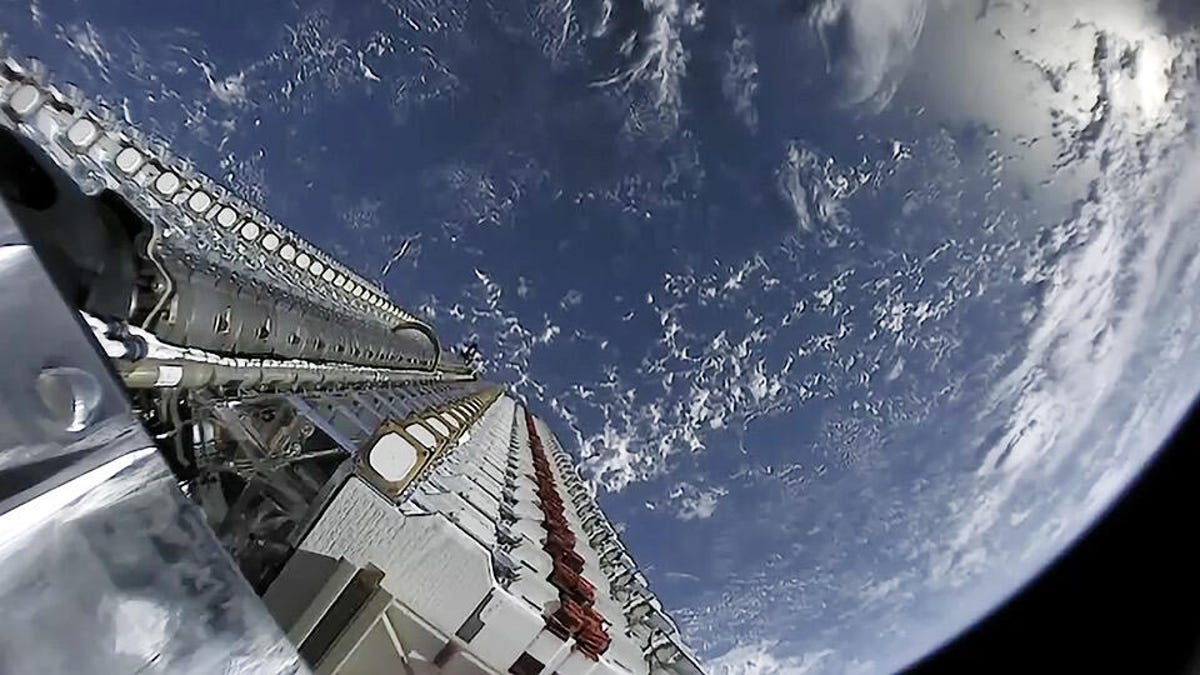SpaceX wins contract to build missile tracking satellites for US military
Starlink isn't just for broadband anymore.

A stack of SpaceX Starlink satellites being deployed in orbit.
SpaceX is now in the business of building satellites that do more than beam broadband around the globe. Elon Musk's space company is one of two awarded a contract from the Space Development Agency (part of the US Department of Defense) to build four satellites each that can track missile threats from low-Earth orbit.
SpaceX will receive over $149 million for the job, while major defense contractor L3 Harris will receive over $193 million, SDA announced on Monday.
The satellites will be developed around an infrared sensor with a wide field of view that can track even hypersonic missiles. The SpaceX satellite will be based around the guts of the Starlink satellite, but the sensor will come from another supplier, Space Development Agency Director Derek Tournear told SpaceNews.
L3 Harris will be producing the full satellites, including the sensor, in house.
SpaceX has already launched several hundred Starlink satellites on its way to eventually producing tens of thousands if its broadband mega-constellation is to meet the company's full ambitions.
The eight satellites will be part of the first generation of what the SDA calls "the tracking layer" and must be designed to interface with "transport layer" satellites being developed by Lockheed Martin and York Space Systems. Transport layer satellites communicate with tracking layer satellites and route the information they gather to where it's needed on Earth.
The companies will be required to deliver the satellites by September 2022, and if all works well, the US military could order up to 30 more of the tracking satellites to add to the system in the coming years.

